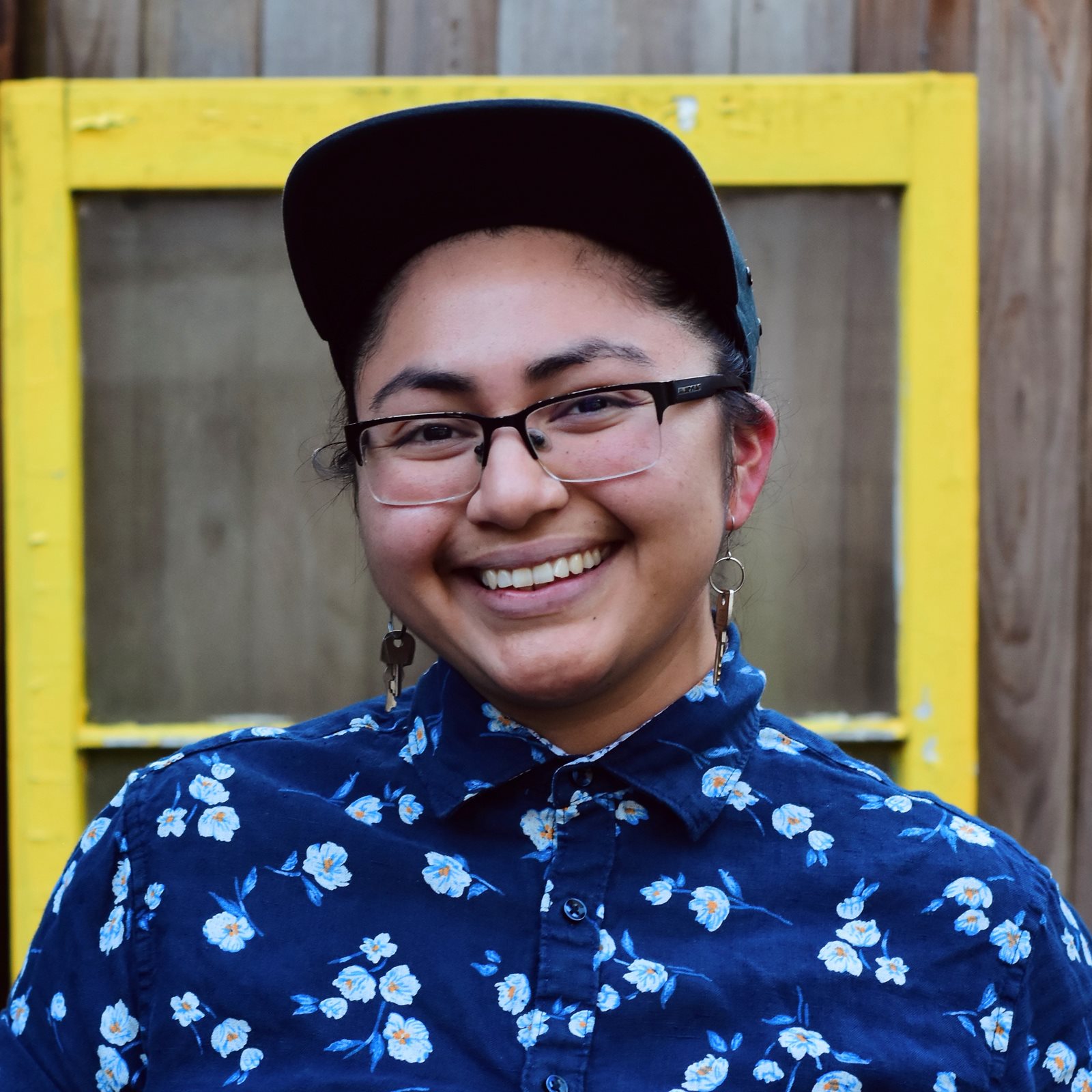Mateó B. Ochoa: An unexpected shift from global travel to community arts organizing

Last November, Master of Arts in Cultural Studies alum Mateó B. Ochoa joined Sundance Institute as their Senior Manager of Community Programs. In this role, Ochoa amplifies the creative works of local theater artists and filmmakers through live and digital public programs throughout the State of Utah. Perhaps best known for its annual film festival, Sundance Institute is a leader in discovering and supporting independent artists, and its reach is worldwide. It’s a place that suits Ochoa’s commitment to elevating other artists — and a place they did not expect to find themself one year ago.
Rewind to December 2019, Ochoa had just embarked on a global travel adventure to Colombia, Brazil, Georgia, India, Indonesia, Taiwan, Philippines, Rwanda, and Ghana. They had been awarded a prestigious Bonderman Fellowship, which offers a select group of University of Washington students the opportunity to broaden their horizons and solo travel for 8 consecutive months across 6 or more countries after graduation.
Ochoa had completed the Cultural Studies program earlier that year and spent months planning their quest to connect with queer and trans artists of color (QTPOC) from across the globe. For years, Ochoa exhibited and performed a variety of creative projects focusing on QTPOC survival, homelessness, and mental health. They view art as central to resiliency, and the Bonderman offered the opportunity to “rejuvenate their artistic practice, soak in the beauty of different landscapes, and most importantly, build new relationships with QTPOC communities from around the world.” In the article, “My Story: An artist around the world,” Ochoa discusses their experience with applying for the Bonderman during their first week abroad in Cartagena, Colombia.
Their plans quickly changed, however, as the pandemic unfolded in early 2020. Ochoa had just landed in Georgia when the Bonderman program called fellows back to the states. While Ochoa would be supported in resuming travel when safe, that timeline became increasingly uncertain. Ochoa found themself in the unexpected position of reassessing their future and revisiting other passions.
Before graduate school, Ochoa had been an artist-in-residence at Destiny Arts Center in Oakland, and while they enjoyed performing, they also found a deep sense of purpose behind the scenes supporting other artists. They considered arts administration as a career pathway, though this was not their primary reason for pursuing the Cultural Studies program. As a student, Ochoa engaged in event organizing as a Graduate Staff Assistant and was hired after graduation as the Events and Communications Coordinator for the School of IAS. One of Ochoa’s proudest accomplishments was organizing the 2019 &Now Festival of Innovative Writing at UW Bothell, a national traveling literary arts festival that featured over 70 panel and performance sessions and hosted 400 attendees. This experience validated Ochoa’s desire to pursue arts administration and became the focus of their next venture.
Ochoa began applying for positions and eventually landed at Sundance Institute in the midst of planning for the 2021 Sundance Film Festival. They immediately got to work by screening and curating a selection of free film screenings for local audiences, like high schoolers. Particularly meaningful for Ochoa was bringing together high school students from the Bay Area and across the State of Utah to watch and discuss Peter Nicks’ timely documentary film, “Homeroom,” which follows Oakland High School’s class of 2020 during tumultuous senior year of graduating in the midst of global pandemic and mobilizing for against police presence in their schools. Initially, there was concern that the film would not be well-received due to Utah’s predominantly conservative school system, but Ochoa felt it was important to, quoting Nina Simone, reflect the times. “We got a lot of positive responses,” Ochoa said. “One teacher said that it really activated their students, who were feeling very cheated with the current culture and especially during COVID. In Utah, it’s very pervasive to tiptoe around certain subjects, so a lot of students don’t feel seen or heard. I’m glad we moved forward with Homeroom.”
Ochoa looks forward to engaging in other projects like creating spaces for artists to come together and reflect on each other’s work in a supportive and generative environment. They are also excited about expanding Sundance Institute’s Community Programs by reaching audiences outside Utah, with the rise of digital engagement. As this happens, Ochoa is mindful of how growth could impact smaller, local organizations doing similar work. “Being a cultural studies person, I think about how power is situated and what implications this move would have,” they say.
Collaborating with grassroots organizations and local arthouses is close to home for Ochoa. They are a part of Black Cinema Collective (BCC), a Seattle-based group of artists and scholars who examine and celebrate works of African and African diasporic filmmakers through programmed screenings and community discussions. Founded in 2019 by then-Cultural Studies student, Berette S Macaulay, Ochoa and Cultural Studies classmate, Savita Krishnamoorthy, later joined as founding members and co-organizers. Like other arts organizations impacted by the pandemic, BCC pivoted to conduct digital screenings and continues to be a nurturing space for Black filmmakers and storytellers.
Ochoa has clearly found a way to build meaningful relationships, spark vital dialogue, and make film and theater arts more accessible. While their travel plans may have been delayed, they are certainly fulfilling their intentions: artists helping artists.
Photo credit: Berette S Macaulay